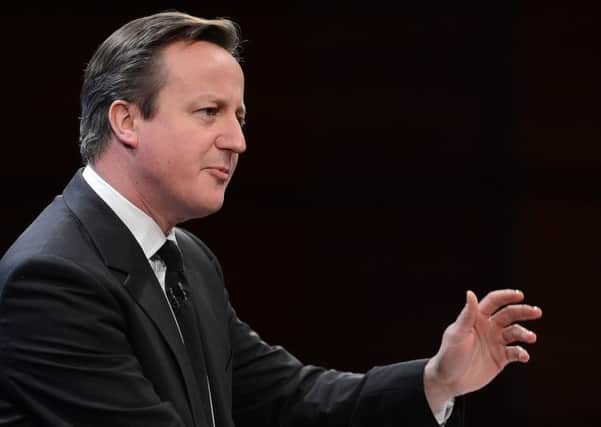Leader: Now the real work begins for David Cameron


But with four months until the in/out EU referendum announced by Prime Minister David Cameron yesterday, Scots could be forgiven for thinking that the result is a foregone conclusion, such is the lack of activity. There appears to be no appetite for a split from the EU, and a glance at the Scottish political figures who are backing an exit – David Coburn, Jim Sillars and George Galloway – provides evidence that there is little mainstream support. To underline this impression, the leaders of Scotland’s four main parties confirmed yesterday that they back the UK staying in the EU.
And outside the party political sphere, opinion polls suggest that Scotland could be one of the most pro-EU areas of the country when it comes to voting intentions at the referendum.
Advertisement
Hide AdAdvertisement
Hide AdThere is a danger, however, that we interpret the mood north of the Border – and a general lack of excitement over the forthcoming referendum – as also being representative of feelings across the UK. Cameron has not spent the last two months scurrying across the continent to lobby EU leaders as a box-ticking exercise.
In last year’s general election, where multiple issues can influence voting intentions, Ukip won only a single seat but attracted four million votes.
A straight choice in a referendum offers an opportunity to others who are in favour of an exit, but were driven by other priorities when they cast their vote at the general election, to fall in behind Ukip. Crucially for Cameron, this means those within his own party, from cabinet ministers down to grassroots members.
The Prime Minister has extracted some concessions which he believes – hopes – will be enough to ease the concerns of those who were toying with the idea of backing an exit. However, the reforms Cameron has agreed by way of renegotiating Britain’s relationship with the EU are not going to prove decisive. We have not witnessed a game-changing moment this weekend. “Call that a deal Dave?” was one of the front page headlines which the Prime Minister woke up to yesterday, in a title he would normally consider an ally.
In addition, the Brexit campaign has scored a significant success with the recruitment of the Justice Secretary, Michael Gove, who provides the kind of clout which is absent in Scotland.
Other cabinet members have joined Gove, but the majority have stayed loyal to their leader. Cameron has to hope that his party membership will reflect that split. He also has to hope that Boris Johnson does not throw his considerable weight behind an EU exit when he makes his intentions clear today, because the London mayor carries a significant amount of popular support, and has the charisma to take the Brexit campaign to another level – the same reasons why he has so often been touted as Cameron’s successor at 10 Downing Street.
Meanwhile in Scotland, we have the distraction of the Holyrood election in May, which will ensure that the EU debate remains marginalised until just a few weeks before the 23 June vote. First Minister Nicola Sturgeon yesterday repeated her objection to the two votes being held so close together, but she was right to then state that we have to move on and get on with it, because the decision has been taken. In any case, it should not be beyond the Scottish electorate to choose a government, and then answer a simple yes or no question seven weeks later.
And it is quite possible that the length of the referendum campaign will have no significant effect on the vote in Scotland. It appears that the UK’s fate will be decided by the Prime Minister’s ability to convince his own party that he has indeed got them a deal.